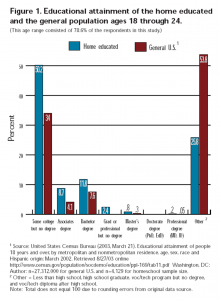The stress. The anxiety. Every homeschool parent has experienced these same doubts and fears:
- I may be doing this wrong.
- Surely a “professional” would be doing a better job!
- I don’t know everything!
- Maybe I won’t teach them everything they need!
- It’s already March, and we’re still struggling with the first half of the textbook.
- I didn’t study calculus, or Shakespeare, or theology. How can I ever get my kids through it? I will fail them, and they’ll never get into college. They’ll struggle and flounder all their lives, and it will all be my fault!
- They hate learning. They hate me. What happened?
What happened? Perhaps, you have lost sight of your goal: to raise functioning adults. The goal is not to download certain banks of textbooks or knowledge into your children’s brains, but to have adults who can learn what they need to know, to handle life as it comes their way, and to know how to find wisdom. As British journalist, Miles Kington, said, “Knowledge is knowing that a tomato is a fruit, wisdom is not putting it in a fruit salad.” You need to return to your focus on wisdom and practicality.
What about college?
We have heard for years that, as a group, homeschooled students are more prepared academically for college than public schooled students. For the 2013-14 school year, the national mean scores on SATs for home educated high school seniors were 567 (reading), 521 (math) and 535 (writing)1 compared with 492 (reading), 501 (math), and 478 (writing)2 for public-school students. These numbers are more than 10% higher overall, with the greatest lift being in reading (over 15%) and the least in math at only 4%.
Once homeschooled students get into college, they tend to fare better than non-homeschooled peers. On average, they transfer more college credits earned while in high school (for example, through dual enrollment programs or CLEP testing) than the number of credits of public schooled students transfer (14.7 vs. 6.6).3 When you consider that an average college semester is comprised of fifteen credit hours, this translates to the savings of a semester in both time and money. They graduate from college at a higher rate and earn significantly higher-grade point averages along the way.4 They have had the opportunity to observe or shadow, and possibly even try out careers while still in high school leading them to have a slightly better idea of what they want to do when they grow up, and therefore, what fields to study.
 Students and instructors alike have reported to me that homeschooled students are generally more engaged—and engaging—in college classes. They tend to pay close attention, ask and respond to questions, and they actually come prepared to class by having read the text! One very impressed professor privately asked a student, “Are you a homeschooled student? I’ve never had one of those!” Later she called attention to the student’s outstanding performance and asked the rest of the class if they were all going to take second place to a homeschooler. Not exactly the attention craved by the student, but it was all done with a sense of awe and respect.
Students and instructors alike have reported to me that homeschooled students are generally more engaged—and engaging—in college classes. They tend to pay close attention, ask and respond to questions, and they actually come prepared to class by having read the text! One very impressed professor privately asked a student, “Are you a homeschooled student? I’ve never had one of those!” Later she called attention to the student’s outstanding performance and asked the rest of the class if they were all going to take second place to a homeschooler. Not exactly the attention craved by the student, but it was all done with a sense of awe and respect.
Because many homeschoolers have had the practice of learning how to learn while in high school (how to dig into a subject, read for content, and study independently), their transition to college isn’t as difficult as for other students. Homeschooled students tend to be given more responsibility for their own learning in the final years of high school than non-homeschooled students. This gives them practice at learning to manage themselves, their time and responsibilities—something most college freshmen struggle with. As parents, you have, I hope, given them opportunities to learn and practice time management skills and decision making: from how much time to spend with friends to healthy food choices to not overspending at the campus food court.
What about socialization?
A 2009 study entitled “Examination of Previously Homeschooled College Students with the Big Five Model of Personality”5 compared previously homeschooled students to college-age students in the general population. They examined the five personality traits of conscientiousness, agreeableness (including trust, altruism, and modesty), extroversion, openness (to new ideas or experiences), and neuroticism. The researchers expected to find the homeschool alumni testing higher than the general population in the first two categories and lower than the general population in the last three categories. In other words, they expected that homeschooled alumni would be conscientious and agreeable, but more introverted, close-minded and neurotic (more given to moodiness, feelings of anxiety, fear, loneliness and other similar traits, and more likely to respond worse to life stressors.)
What they found seems to confirm what homeschooling families have been saying all along: that overall, there’s no problem with the social adaptation of their children. The study found no statistical difference in extroversion or neuroticism than the general population. The tests for agreeableness, conscientiousness, and openness to new ideas all showed significant—and positive, in my opinion—differences from the general population.
“The finding that the homeschooled sample was significantly more agreeable and conscientious supports the belief of many homeschooling parents, [and] observers of homeschooled children….”6 High conscientiousness is further correlated to intrinsic job satisfaction and success in life.
Home educated students in this study were shown to be more open than the national sample, tending to contradict the charge that is sometimes leveled at homeschooling families that their children are too sheltered and may end up being close-minded. The very fact that many of us encourage our children to follow their interests and intellectual pursuits, seek out unusual or independent learning opportunities, and try different cultural opportunities (such as dance, music and the arts) appears to be having a positive effect. “This finding may reflect that these students are more independent, intellectual, and creative as compared to their traditionally schooled peers.”7
Since the study found no statistical difference between homeschooled students and the general population in the categories of extroversion and neuroticism, homeschooled students cannot be said to be adversely affected in those areas by the family’s educational choice. Overall, “homeschooling parents should be heartened that their atypical lifestyle and educational practices are having a positive impact on the character development of their children. In addition, this study does not support the concern of critics or parents that homeschooling will have a negative impact on a student’s openness to others’ ideas in society or have a negative impact on the emotional and social dimensions of their personality.”8
In a separate article by Dr. Patricia Lines, commissioned by the Discovery Institute in 2000, videos of children playing were shown to counselors who did not know which children were homeschooled and which were public schooled. Based on the counselors’ evaluations, homeschooled children had fewer behavioral problems than the non-homeschooled children in the samples. Dr. Lines’ conclusion: There is no basis to question the social development of homeschooled children.9
What about success in the real world?
We see that our students, as a whole, do well academically. Studies show that, as a whole, homeschool students are at least as well, if not better, prepared for life emotionally. What about real life? What about living as an adult? There are many listings of famous homeschoolers: Bethany Hamilton, Venus and Serena Williams, the Jonas brothers to name a few. But what about the rest of our students? After extensively searching the Internet, I found only a few studies concerning how formerly homeschooled adults relate to life after college. The lack of studies is attributable, I believe, to the fact that they fly away and go about living their lives.
A report updated January 2018 by Dr. Brian Ray of the National Home Education Research Institute indicates that the majority of homeschool graduates seem to be managing adulthood pretty well. Based on available research, he has found that in adulthood, homeschool graduates:
- “are more politically tolerant than the public schooled in the limited research done so far…”
- participate in local community service more frequently than does the general population
- vote and attend public meetings more frequently than the general population
- go to and succeed in college at an equal or higher rate than the general population
- by adulthood, internalize the values and beliefs of their parents at a high rate”10
A 2009 Canadian study reports: “Homeschooled adults who participated in this study were more likely than the comparable Canadian population to have completed an undergraduate degree, to be civically engaged, to value their religious beliefs, to have multiple income sources, to report income from self-employment, and to report high satisfaction with life. They were found to be physically active, to have higher average incomes than their peers, and were notably more engaged than the comparable population in a wide variety of cultural and leisure activities.”11
From more than twenty-five years of being involved in the homeschool world, I can give you anecdotal evidence that at least as great a percentage of homeschoolers as those who come from non-homeschooling backgrounds make the transition to self-supporting and independent adulthood.
As with any other group, some decide to go on to higher education or a trade school, and some decide to go directly into the workforce. I know a number of homeschool graduates with an entrepreneurial bent who have started businesses: a photographer, a dog groomer, a videographer, a pianist, a house painter, a hair stylist, a lawn care professional. Others pursue careers as stay-at-home moms or with the military—one family has two Marines and two in the Air Force. I know twenty and thirty-somethings who were homeschooled and are leading successful lives as engineers, medical professionals, IT professionals, and teachers.
Alexandria, a twenty-something mechanical engineer who was homeschooled all her life, attributes some of her success as an adult to the ability to think critically. “I’ve had different random people say that the fact I can think sets me apart. I’ve heard it said to other formerly homeschooled adults as well.”
Last year, I attended a panel presentation at the HSLDA Leadership Conference. The panel consisted of five homeschool graduates: a published author, the director of external affairs for the Leadership Institute, one each in the state legislatures of Indiana and Florida, and Jordan Taylor of BlimeyCow (Messy Mondays) on YouTube. We in the audience were sitting there in awe of these high achieving former homeschoolers. It made me look at my efforts and think, “Wow, you could’ve done so much better!” Then, Jordan spoke, as if reading my mind: “Don’t worry. You see us up here and stress about all that you should’ve/could’ve done with your kids or are doing with your kids. And you think you have to keep doing more and more. But don’t worry. You’re not going to ruin your kids. They’ll turn out okay.”
And that says it all!
1https://www.nheri.org/homeschool-sat-scores-for-2014-higher-than-national-average/
2http://www.dpi.state.nc.us/accountability/reporting/sat/2014http://www.dpi.state.nc.us/accountability/reporting/sat/201
5https://www.nheri.org/examination-of-previously-homeschooled-college-students-with-the-big-five-model-of-personality/
6ibid.
7ibid.
8ibid.
9www.discovery.org/a/3479
10https://www.nheri.org/research-facts-on-homeschooling/
11 https://thewaysofyore.files.wordpress.com/2013/10/2009-study.pdf, “Fifteen Years Later: Home Educated Canadian Adults,” by Deani A. Neven Van Pelt, Ph.D., Patricia A. Allison, M.Ed.,and Derek J. Allison, Ph.D., Canadian Centre for Home Education
https://www.hslda.org/research/ray2003/Fig1.gif




